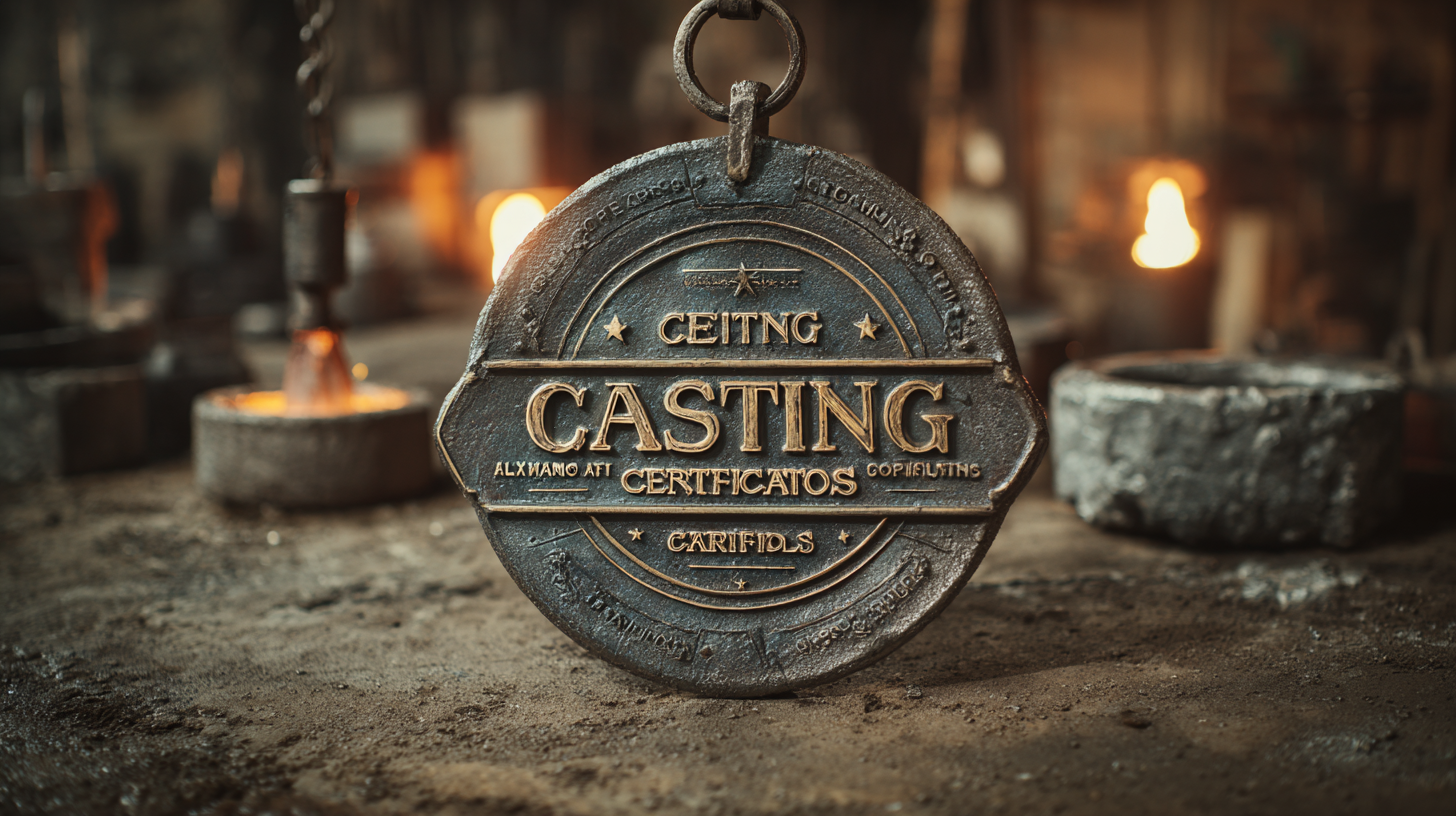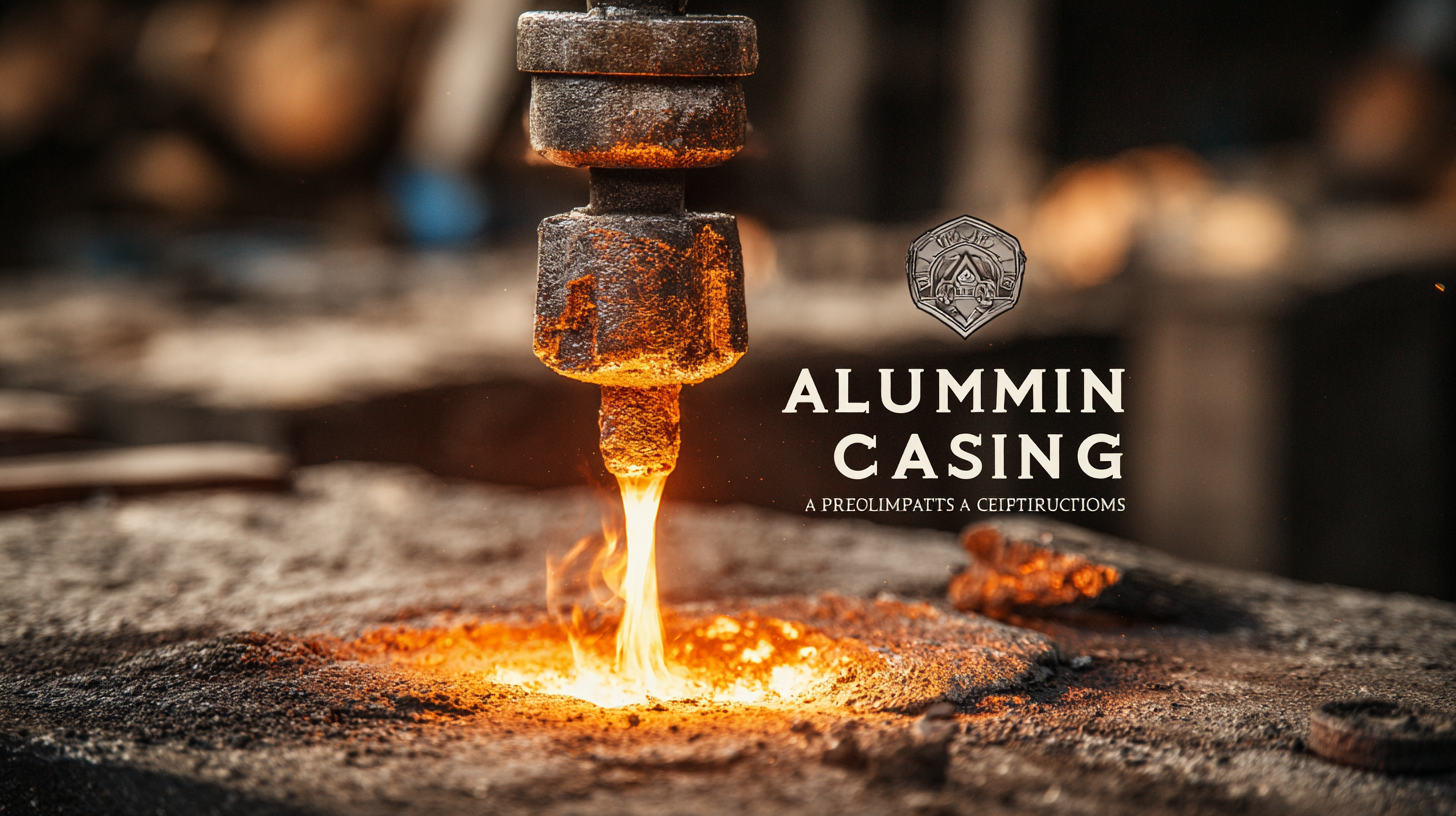

In the world of manufacturing, Aluminum Casting stands out as a vital process that leverages the unique properties of aluminum to create intricate designs and sturdy components. However, for businesses looking to succeed in the global marketplace, understanding export certifications is crucial. With various certifications available, each possessing distinct criteria and benefits, it can be overwhelming for manufacturers to navigate this landscape. In this blog, we will explore seven essential export certifications that can significantly enhance your aluminum casting operations. By comparing these certifications, we will uncover their roles, requirements, and the competitive advantages they offer to businesses. Join us as we delve into the secrets of optimizing your aluminum casting processes, ensuring compliance, and elevating your product quality on an international scale.

Aluminum casting plays a critical role in the global markets, especially in high-demand sectors such as wind turbine manufacturing. The wind turbine casting market, particularly for aluminum components, is projected to witness significant growth between 2024 and 2031, driven by increasing investments in renewable energy. According to recent industry analyses, the market is segmented by material type, applications including onshore and offshore wind turbines, and various turbine models. It is estimated that aluminum will dominate the casting materials due to its lightweight and corrosion-resistant properties, accounting for a sizable share of the overall casting market.
As new trends emerge, potential investors and manufacturers should stay informed about essential export certifications that enhance competitiveness in international markets. Tips for navigating this landscape include understanding the compliance requirements of target markets, actively pursuing certification for high-quality aluminum products, and engaging in continuous research about global market demands. The high-strength aluminum alloy market also follows a similar trend, with applications spanning aerospace to industrial use, showcasing the versatility and importance of aluminum in modern manufacturing.
Investors should pay attention to market reports indicating that the high-strength aluminum alloy market is anticipated to evolve, with significant opportunities arising from advancements in casting technologies. Engaging with industry experts and participating in specialized forums might provide insights into market dynamics and regulatory updates, ensuring successful navigation of the evolving aluminum casting landscape.

In the aluminum casting industry, export certifications play a crucial role in ensuring product quality and compliance with international standards. The key certifications such as ISO 9001, ISO 14001, and ASTM standards not only enhance marketability but also guarantee that the products meet the stringent requirements of global markets. According to a recent report by the Aluminum Association, companies with recognized certifications experience 30% fewer product defects and a 25% increase in export opportunities, highlighting the importance of quality assurance in achieving international competitiveness.
Additionally, specific certifications like CE marking and RoHS compliance are essential for manufacturers targeting the European market. These certifications assure customers that products are safe and environmentally friendly. The demand for certified aluminum castings is surging, with a projected growth rate of 4.5% annually over the next five years, driven by advancements in automotive and aerospace applications. Understanding and obtaining these essential export certifications can be a game changer for manufacturers looking to expand their reach and build trust with international clients.
The importance of ISO standards in the aluminum casting industry cannot be overstated, especially as global trade expands. These standards ensure that products meet consistent quality requirements and safety regulations, fostering reliability and trust among manufacturers and consumers alike. ISO certification enhances the credibility of aluminum casting products, paving the way for smoother international transactions and a stronger competitive edge in the marketplace.
Recently, India has taken significant steps to elevate the safety and quality of cooking utensils, particularly those made from aluminum and steel. With new regulations set to take effect in March 2024, the Indian government aims to protect consumers by implementing stringent guidelines that align with international standards. This initiative not only enhances kitchen safety but also reinforces the importance of compliance with established standards, further highlighting the critical role ISO certification plays in the aluminum casting sector and beyond. As industries globally strive for quality assurance, adherence to these regulations will be vital for maintaining high production standards and gaining consumer confidence.
| Certification | Description | Impact on Quality | Impact on Trade |
|---|---|---|---|
| ISO 9001 | Quality Management Systems | Ensures consistent quality and continuous improvement | Enhances customer satisfaction ultimately leading to increased market share |
| ISO 14001 | Environmental Management Systems | Minimizes environmental impact and promotes sustainability | Improves compliance with environmental regulations, facilitating exports |
| ISO 45001 | Occupational Health and Safety Management | Promotes safe and healthy work environments | Reduces workplace incidents, enhancing trade credibility |
| ISO/TS 16949 | Automotive Quality Management Systems | Focuses on defect prevention in automotive supply chains | Opens up opportunities in the automotive industry |
| ISO 50001 | Energy Management Systems | Improves energy efficiency and reduces costs | Attracts eco-conscious customers in trade |
| ISO 26000 | Social Responsibility Guidance | Promotes ethical and sustainable practices | Strengthens brand reputation in international markets |
| ISO 9000 | Quality Management Overview | Establishes fundamental quality management principles | Facilitates smoother trade by standardizing quality expectations |
Navigating the complex world of aluminum exporting requires a thorough understanding of certification processes. First and foremost, businesses must identify the relevant certifications based on their target markets. This involves researching the specific requirements of each country, as regulations can vary significantly. Not only do certifications ensure compliance with safety and quality standards, but they also build trust with potential customers, which is crucial for successful export operations.
Once the necessary certifications are pinpointed, companies should streamline their application processes. Creating a detailed checklist can help manage deadlines and required documentation efficiently. Engaging with experts in export compliance can smoothen the journey, ensuring that all paperwork is correctly prepared. Furthermore, maintaining open lines of communication with certifying bodies can facilitate quicker approvals and address any concerns proactively, ultimately leading to a more successful aluminum export venture.
In 2023, the demand for certified aluminum cast products is witnessing a significant uptick across various industries. As regulations tighten globally, manufacturers are increasingly required to obtain export certifications to compete effectively in international markets. The shift towards sustainability and environmentally friendly production processes is also pushing companies to prioritize quality assurance and compliance with industry standards.

Tip: For businesses looking to enhance their market position, focusing on acquiring essential export certifications is crucial. These certifications not only ensure adherence to quality and safety standards but also instill confidence among consumers and stakeholders.
With the consumer's increasing awareness of product quality and safety, aluminum casting companies must adapt to these market trends by investing in robust certification processes. This adaptation not only meets regulatory requirements but also opens doors to new markets where certified products are in high demand.
Tip: Regular audits and training can help maintain the standards required for these certifications. Investing in employee education about compliance can lead to improved production quality and reduce the risk of costly reworks due to non-compliance.